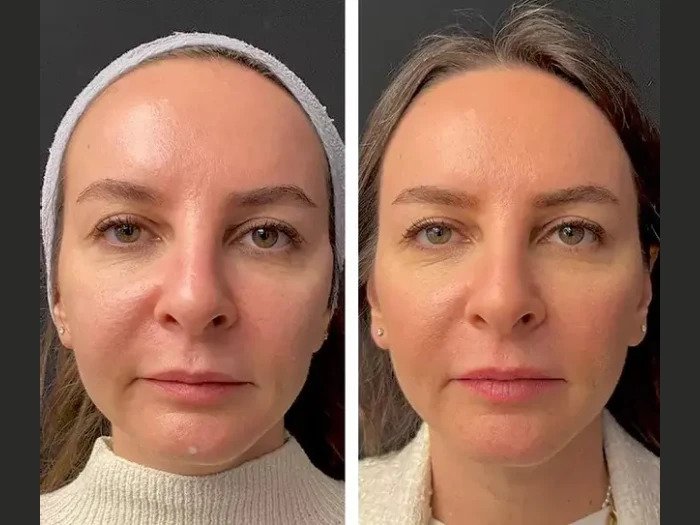TrIs it just period pain—or something more serious? Many women mistake appendix pain for cramps, ovarian cysts, or even a UTI. That’s why understanding the symptoms of appendix in females is so important. The pain might start near the belly button and shift to the lower right side—but because of the female anatomy, it’s often misread. And a delayed diagnosis could mean a burst appendix and emergency surgery.
Let’s break it down clearly—what you should look out for, what causes appendicitis in women, and why getting the right treatment early matters.
Why Appendix Pain is Easy to Miss in Women
Women’s abdominal anatomy is complex. The appendix lies close to the uterus and ovaries, so the pain often feels like menstrual discomfort or ovulation pain. It may also feel like a urinary tract infection or indigestion.
That’s why many women dismiss the early warning signs. They wait. They hope it goes away. But with appendicitis, time is critical. Ignoring symptoms can make things much worse.
Common Symptoms of Appendix in Females
Recognizing the red flags early can help you avoid complications. Watch for these:
- Pain Shifting to Lower Right Abdomen
Begins near the belly button, then moves to the lower right side. It gets sharper and worse over time. - Loss of Appetite
Not just a lack of hunger—your body is signaling internal distress. - Nausea or Vomiting
If stomach pain is paired with vomiting, it’s a potential appendix warning. - Low-Grade Fever
A mild fever that slowly rises indicates infection.
- Bloating and Gas Trouble
You may feel full, unable to pass gas, or slightly constipated. - Increased Pain While Moving
Laughing, walking, coughing—all make it worse? That’s a big red flag.
If you notice more than one of these, consult a doctor immediately.
Appendix Pain vs Period Pain: How to Tell the Difference
It’s not always easy. Here’s a quick comparison:
What Causes Appendicitis in Females?
Several things can block or irritate the appendix:
- Fecal Stones (Appendix Stones) – Hardened stool that blocks the opening.
- Swollen Lymph Tissue – From infections, causing blockage.
- Colon Inflammation (Colitis) – Spreads to the appendix.
- Tumors or Growths – Rare, but possible.
- Parasites – Worms that block or irritate the appendix.
- Cystic Fibrosis – Leads to thick secretions and blockages.
Each of these causes can lead to infection, inflammation, and eventually rupture if untreated.
Why Diagnosis Is More Complex in Women
Certain reproductive health issues mirror appendix symptoms. These include:
- Pelvic Inflammatory Disease (PID)
- Ovarian Cysts or Torsion
- Painful Ovulation (Mittelschmerz)
- Endometriosis or Fibroids
These conditions may present with abdominal pain, fever, or nausea—just like appendicitis. That’s why accurate diagnosis matters.
How Doctors Diagnose It
- Physical Exam: Pressing on the lower right belly to test tenderness.
- Blood Test: To check for infection.
- Ultrasound or CT Scan: Gives a clearer picture of internal organs.
Dr. Vikram Aryan often performs a quick but thorough diagnosis, avoiding unnecessary delays or confusion.
What If You Need Surgery?
If appendicitis is confirmed, surgery is the safest and fastest solution. It’s called an appendectomy. This can be:
- Laparoscopic (Keyhole Surgery): Less pain, quicker recovery.
- Open Surgery: For advanced or ruptured cases.
Recovery is usually 1–2 days in the hospital, followed by rest at home. Dr. Aryan’s surgical team at Aryan Hospital ensures comfort, minimal scarring, and fast recovery.
Risks of Ignoring Appendix Pain
Letting it worsen can lead to:
- Burst Appendix (Peritonitis)
- Spread of Infection
- Longer Hospital Stay
- Higher Risk Surgery
Women often wait because they assume it’s “just another cramp.” Don’t take that chance. The symptoms of appendix in females need careful attention and a timely response.
Why Choose Dr. Vikram Aryan for Appendix Treatment?
- 18+ Years of surgical excellence
- Expert in differentiating female-specific symptoms
- Laparoscopic and open appendix surgery expert
- Minimal hospital stay and quick recovery
- Trusted care in Gurgaon
If you’re unsure whether it’s cramps, gas, or something serious, trust your instincts—and get expert advice.
Final Word
Pain that doesn’t go away is a message. Your body is trying to tell you something. The symptoms of appendix in females can be tricky, but knowing what to look for can save you from complications and surgery.
If you’re in doubt—get checked. And if you’re in or near Gurgaon, Dr. Vikram Aryan is best general surgeon in Gurgaon for appendix surgery and women’s abdominal care.
Thank You, Tricky Blogs, for giving healthcare professionals a space to share free, informative articles and reach more people in need of guidance.





